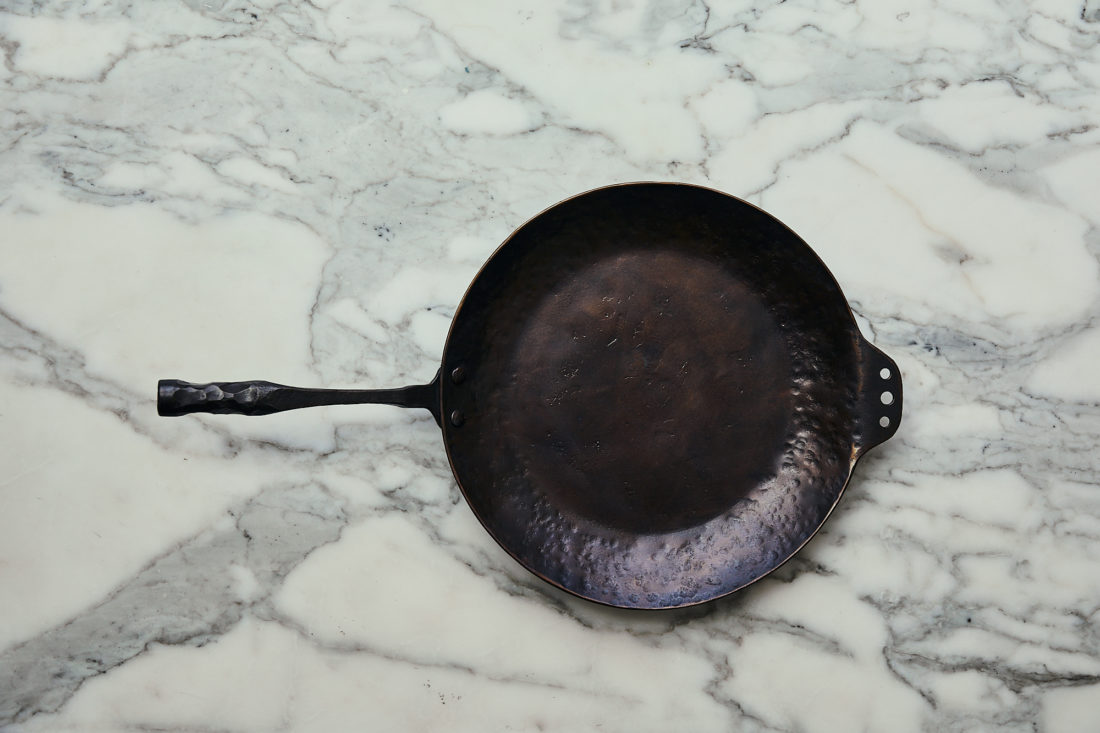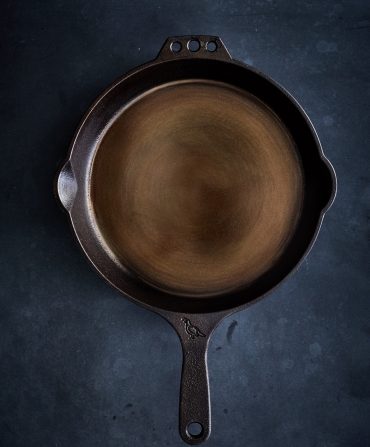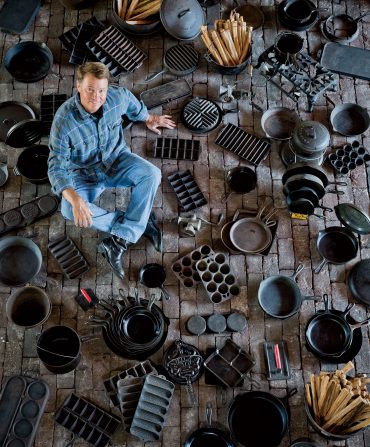“Ironwork is part of the fabric of Charleston,” says blacksmith Robert Thomas. “It’s the only city I’ve ever been to in America where I can say I’m a blacksmith and people understand what I mean. Other places they ask, ‘Oh, you work a Renaissance fair? You make horseshoes?’”
So his partnership with another Holy City metalworking outfit was only natural; in July, Thomas and Isaac Morton of Smithey Ironware Company collaborated to produce a run of 100 Farmhouse skillets, 12-inch hand-forged carbon-steel pans that evoke eighteenth-century designs. Demand proved so strong that the Farmhouse is now going into limited production as part of the Smithey line.
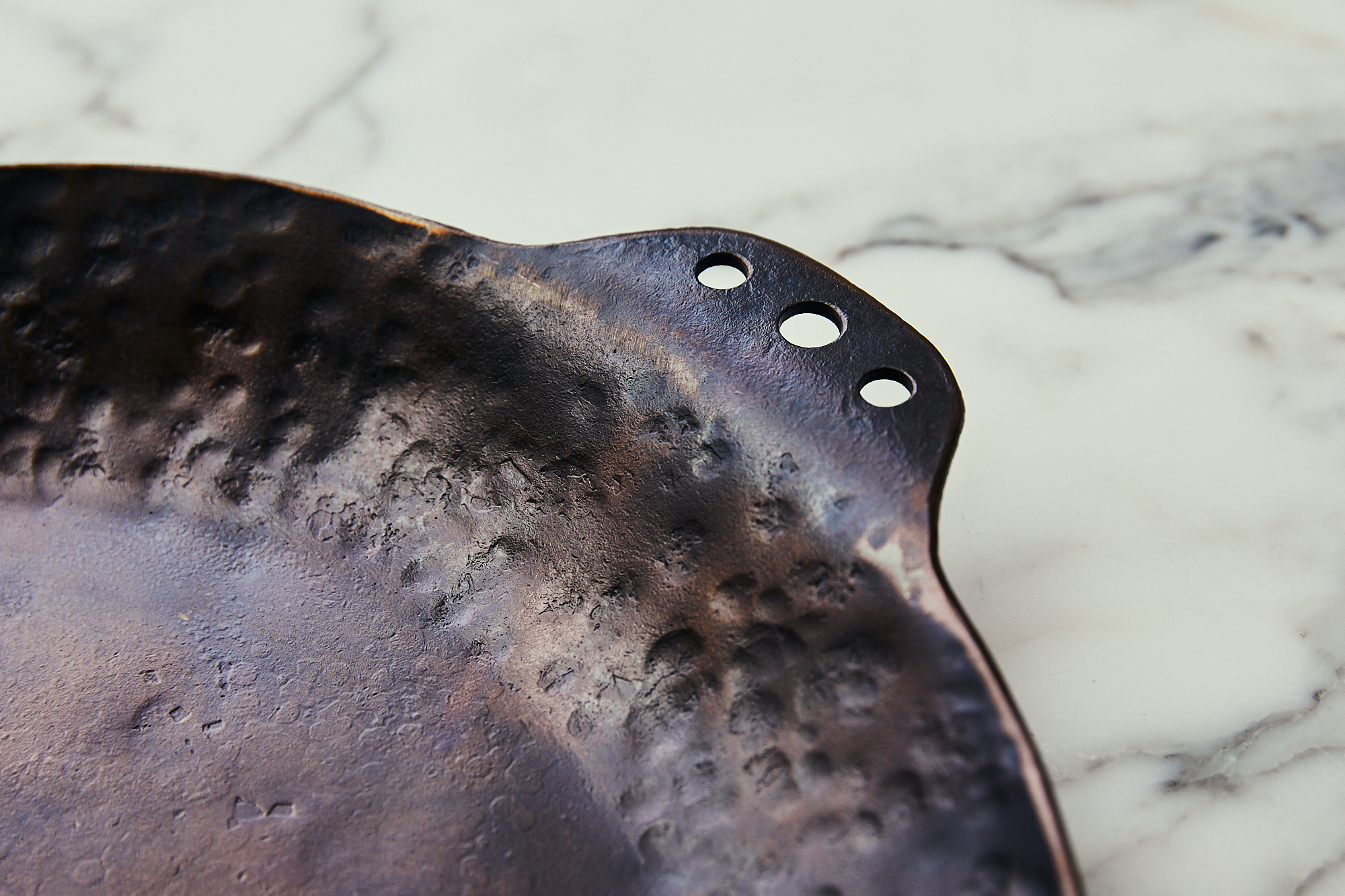
Photo: Kirk Chambers
A Farmhouse skillet from Smithey.
Unlike cast-iron pans, which are formed by pouring molten iron into molds, Farmhouse skillets are heated and hand-hammered into shape at Thomas’s studio, where they are transformed from flat, gray steel discs into shallow bowls with handles inspired by traditional fire tools. From there, the pans travel across North Charleston’s decommissioned naval base to Morton’s shop, where they are seasoned to a buttery, bronze-colored finish, ready for cooking. The chef Vivian Howard is already a fan; the Farmhouse recently made an appearance in her weekly Instagram videos.
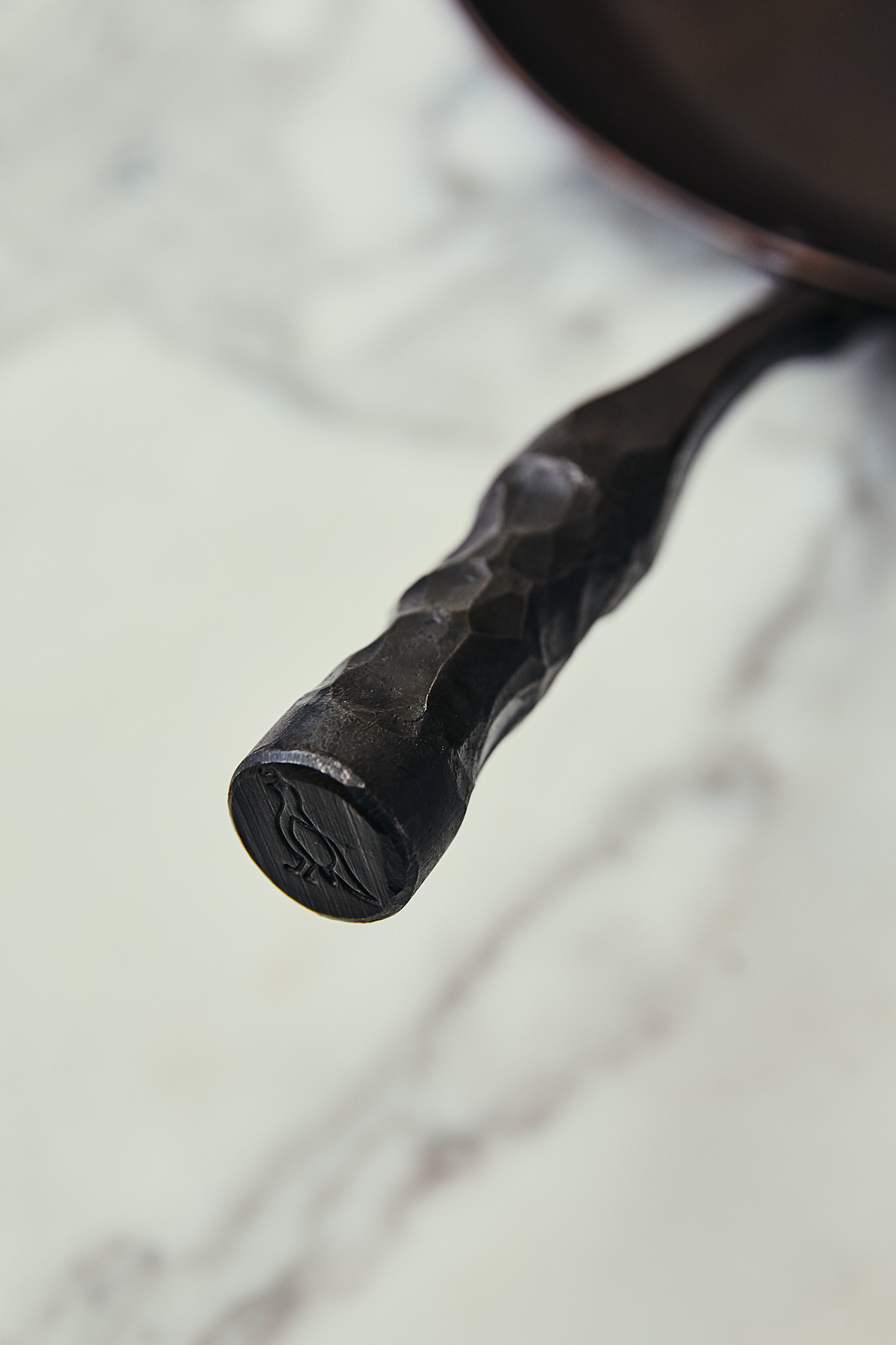
Photo: Kirk Chambers
The Farmhouse skillet’s handle draws inspiration from traditional fire tools.
Carbon is a shift for Morton, who launched Smithey from his backyard in 2015. “The biggest difference between a carbon skillet and cast-iron is it’s lighter, has a thinner wall, and you can create a more unique shape,” Morton says. With its slight lip, the Farmhouse can easily hold a pan sauce—a key difference from many other carbon-steel skillets, which have angled lips and shallow bowls. Carbon pans sear beautifully and take on a naturally non-stick quality with use. They’re less prone to breaking, too.
“People have a real appreciation for ironwork here,” Thomas says, “so it makes sense that this skillet would come from this town.”


